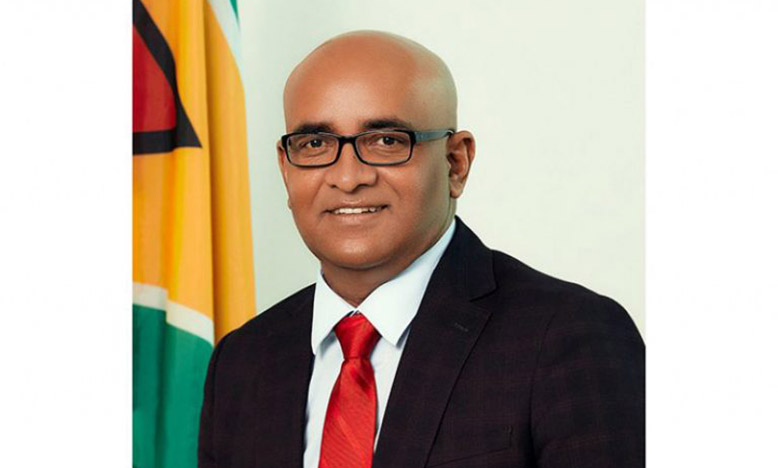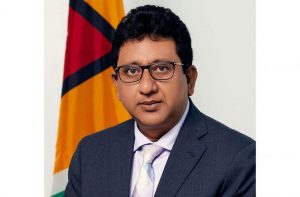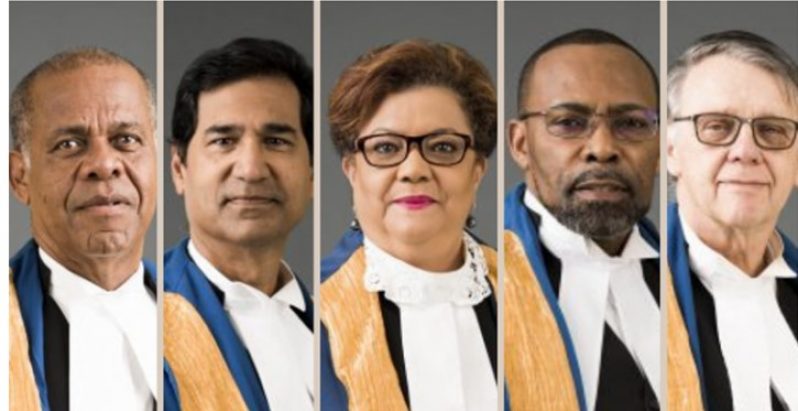THE Caribbean Court of Justice (CCJ), on Wednesday, ruled that the Court of Appeal (CoA) in Guyana does not have the jurisdiction to hear and determine the appeal filed to challenge the dismissal of A Partnership for National Unity + Alliance For Change (APNU+AFC)’s Election Petition 99 of 2020.
The Trinidad-based court allowed the appeal filed by Attorney-General Mohabir Anil Nandlall, S.C., and Vice-President, Dr. Bharrat Jagdeo as the General Secretary of the People’s Progressive Party (PPP), and ruled to overturn the CoA’s ruling on that petition.
Justices Jacob Wit, Maureen Rajnauth-Lee, Denys Barrow, Winston Anderson and Peter Jamadar presided over the case at the CCJ, which is Guyana’s final court of appeal.
Justice Anderson while delivering the court’s ruling said that Guyana’s appeal court did not have jurisdiction to hear the case since the matter was thrown out by the High Court.

Additionally, he said there is no statutory or constitutional instrument granting jurisdiction to the Court of Appeal to hear an appeal of an election petition for procedural impropriety, or any other reason not stated in Article 163 (1) of the Constitution.
The Trinidad-based court found that the jurisdiction of the High Court was not invoked to answer this question in the petition, since the matter never went to trial, and was thrown out.
“There was no right to appeal to the Court of Appeal,” Justice Anderson said, while later adding that “…the decision to dismiss the petition for failure to comply with statutory requirements as the service was an exercise of judicial discretion pursuant to the powers, jurisdiction and authority provided for by section 42 of the Elections Validity Act and Rule 21 of the elections validity rules.”
The Court emphasised that Article 163(3) of the Constitution limits the right to appeal decisions of the High Court in election petitions to only two circumstances.
However, the decision of the Chief Justice to strike out the petition on the basis that there was improper or late service on the former leader of APNU+AFC, David Granger did not fall into either of those circumstances, and an appeal was not possible.

Additionally, the CCJ found that “jurisdiction” could not be founded in Article 123 of the Constitution and Section 6 of the Court of Appeal Act since the “special elections” jurisdiction created by Article 163 of the Constitution, the Act and Rules must prevail over the general “civil law proceedings” jurisdiction contemplated by Article 123 and Section 6 (2) of the Court of Appeal Act.
“It could not be accepted that proceedings which began in the High Court under this exclusive, exclusionary, and special jurisdiction for dealing with election petitions, suddenly transmogrified into ordinary civil law proceedings and appeal.
“Neither is it permissible to depart from or import into, by implication, a jurisdiction not created,” Justice Anderson said while delivering the CCJ’s ruling.
Against this backdrop, the CCJ Judge observed that in Guyana, the deep basic structure and core constitutional values and principles found in Guyanese constitutionalism should guide a court when faced with choices as to multiple interpretations of statutory provisions.
“This is especially true in relation to provisions that implicate core constitutional values such as free and fair parliamentary elections,” the CCJ Judge said as he suggested that the narrow jurisprudential issue in such cases needs to be placed, contextualized and understood through the lenses of “democratic governance”.
The initial appeal case was filed in January 2021 by Roysdale Forde, S.C., the attorney for APNU+AFC, and Trinidadian attorney, John Jeremie, S.C.
Among other things, they contended that the Chief Justice erred in law, and misdirected herself when she misapplied the doctrine of strict compliance, by holding that such compliance is related to the contents of the Affidavit of Service instead of the filing of the Affidavit of Service in a timely manner.
On December 21, 2021, in a 2-1 decision, the Chancellor of the Judiciary, Yonette Cummings-Edwards, and Justice of Appeal, Dawn Gregory said that the Court of Appeal has jurisdiction to hear and determine the appeal filed.
The Chancellor, in her ruling, said that the decisions of the Chief Justice were a final order on both the election petition and a preliminary issue of compliance.
She further contended that Article 163 of the Constitution states that an appeal to the Court of Appeal can be made from the decision of a judge of the High Court granting or refusing leave to institute proceedings for the determination of any question.
“In my view, the Honourable Chief Justice sat in the elections jurisdiction of that matter and considered the validity of the petition…determined that validity in relation to whether or not the proceeding could go on, and the Chief Justice dismissed that proceedings,” Chancellor Cummings-Edwards had said.
Since the Chief Justice’s decision was a final order, the Chancellor said that the petitioners have a right to an appeal since there was no decision on the petition itself.
She also ruled that the Full Court of the High Court does not have the power to hear the appeal of an election petition dismissal for want of compliance.
She said it is a power Parliament should consider conferring upon the Full Court.
However, Justice of Appeal, Rishi Persaud had disagreed. According to him, the applicants, Monica Thomas and Brennan Nurse, had no right to appeal since there was no final decision by CJ George, who had dismissed the application in January on the grounds of serious non-compliance. At the time, the matter was before the High Court.
Justice Persaud had also ruled that the Full Court of the High Court does not have jurisdiction to entertain the appeal and therefore ruled that the appeal was dismissed.
In the case, Nandlall had argued that the Court of Appeal does not have jurisdiction to hear the matter since it was thrown out by the High Court, and no evidence was heard.
Nandlall said that based on the uniqueness of the case, like the Appeal Court, the Full Court also has no jurisdiction to hear the case.
Aside from Dr. Jagdeo, the coalition named Chief Election Officer (CEO) of GECOM, Keith Lowenfield, representatives of several political parties, and former President Granger, as respondents in the appeal.
In June 2021, the coalition appealed the second election petition 88 of 2022 case, which was filed by Claudette Thorne and Heston Bostwick.
That petition was dismissed on April 26, 2021 by the Chief Justice on the grounds of serious non-compliance with the Constitution of Guyana and electoral laws as they relate to GECOM’s conduct of those elections.
The Chief Justice held that the petitioners failed to present evidence to support claims that the conduct of those elections contravened the Constitution and the country’s electoral laws.
The appeal for the second dismissed petition, Election Petition 88 of 2020 is currently before the Court of Appeal.





.jpg)








